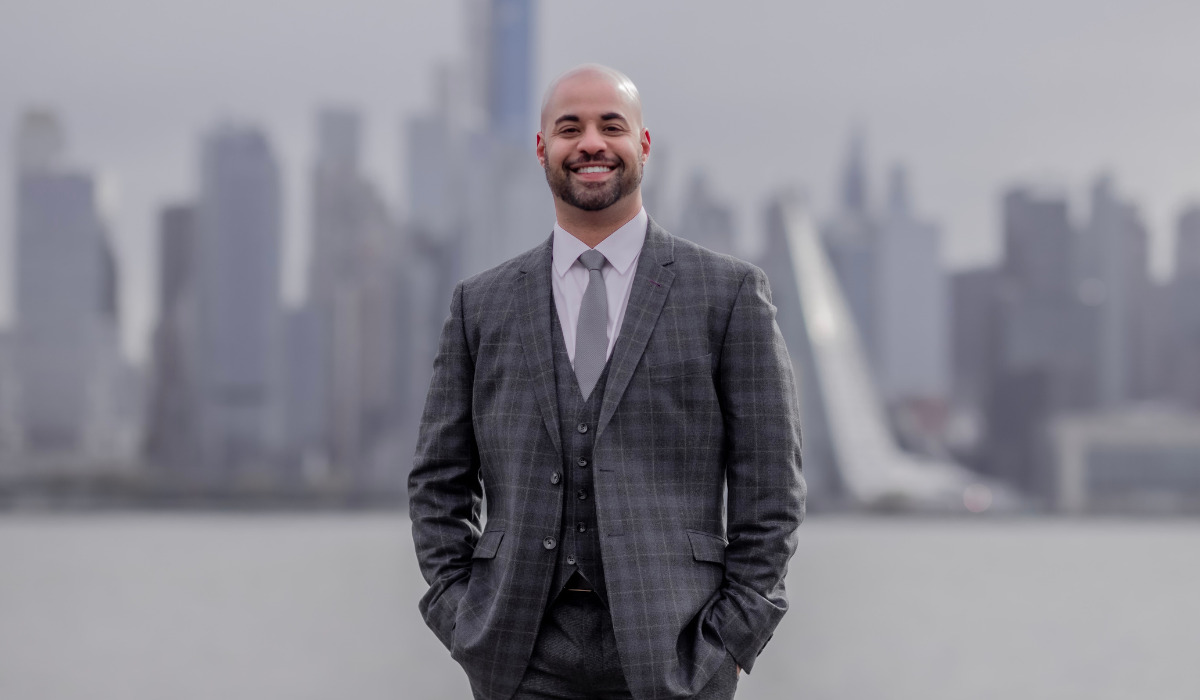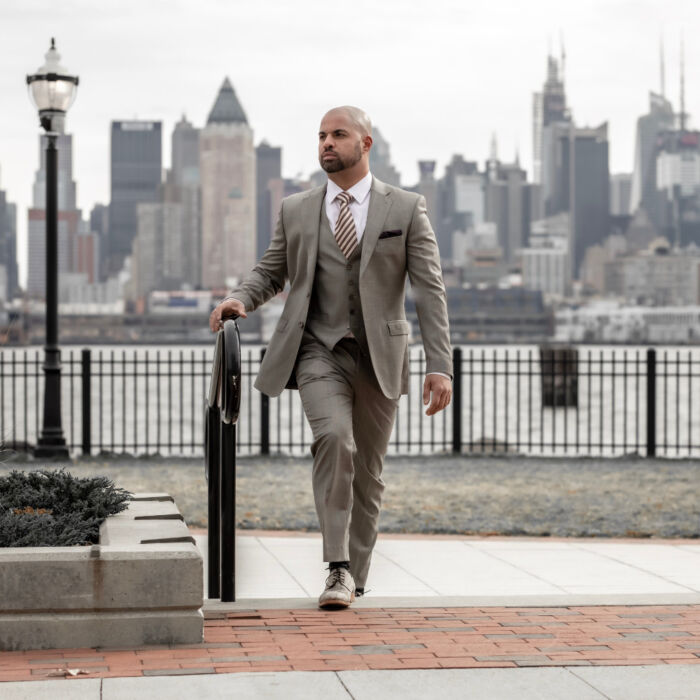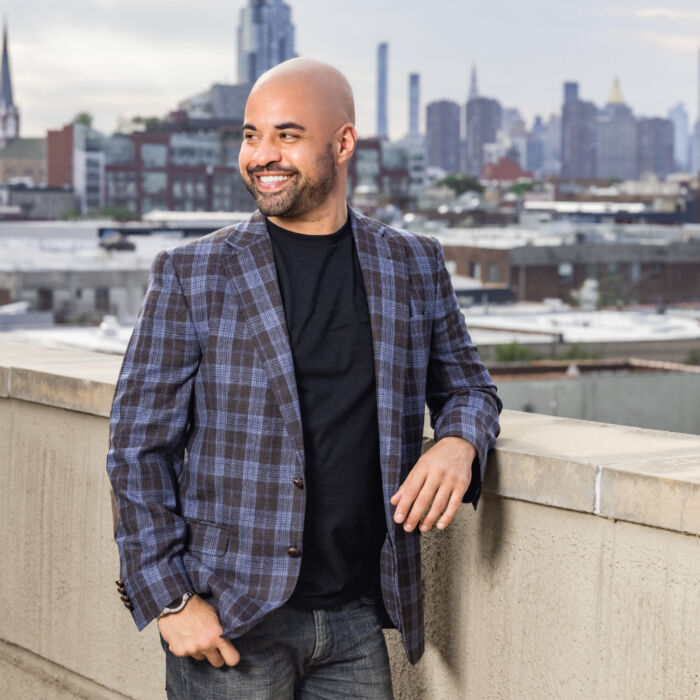Foundr Magazine publishes in-depth interviews with the world’s greatest entrepreneurs. Our articles highlight key takeaways from each month’s issue. We talked with Dr. Adam Bandelli, an industrial-organizational psychologist, about how founders can build trust within their businesses. To read more, subscribe to the magazine.
—————
What is greatness?
Is it measured in accolades, confidence, or results?
It’s natural to want to be great, but how can you achieve greatness if you’re starting a business?
Dr. Adam Bandelli believes that being a great leader doesn’t happen because of a title or a number. Instead, it starts with a mindset.
Great leaders are great from the start—even before helming a well-known company or a large team.
Bandelli would know. He is a business psychologist and founder of Bandelli & Associates, a consulting firm that coaches CEOs, senior executives, and founders. The firm specializes in hiring and onboarding senior talent, executive coaching, and executive education and learning. Bandelli is also the author of two books, Relational Intelligence and What Every Leader Needs.
So how did Bandelli come to be a leader of leaders? His passion for coaching began as a child watching the greats of his favorite sport.
The Greats
Growing up, Bandelli was obsessed with basketball. He played in school and spent hours watching 1980s NBA stars, including Larry Bird, Magic Johnson, and Michael Jordan.
“It was my first preview into teamwork and motivation and leadership,” Bandelli says. “I was fascinated by this question, and I have been the last 40-plus years of my life: What makes a great leader?”
After Bandelli realized he didn’t have the skills to be the next Michael Jordan, he started studying psychology as an undergraduate at Fairleigh Dickinson University. On campus in Madison, New Jersey, Bandelli transitioned his determination for athletic success to absorbing everything it took to be a great leader. He studied the best practices of championship-winning coaches, Fortune 500 executives, and politicians.
“I had a vision as an undergraduate that I wanted to be a business psychologist,” Bandelli says. “I didn’t know what that meant, but my mentor was one, and I wanted to be a consultant in New York City.”
Bandelli obtained a master’s degree and doctorate in industrial-organizational psychology, studying human behavior in the workspace. Following graduation, he started working at RHR
International, an independent global leadership consulting firm, and in 2011 became a partner.
On paper, Bandelli had fulfilled his dream of becoming a business psychologist. But he knew he could do more for clients.
Five years after becoming a partner, Bandelli took a risk. He struck out on his own and launched Bandelli & Associates, a consulting firm focused on four areas: relational intelligence, innovation, mental health, and working with multicultural and multiethnic clients.
“I wanted to build a firm that was different [from] other firms in my industry,” Bandelli says. “I look at what I do now as a calling and purpose in my life.”
Emotional Intelligence
Bandelli says great leaders begin with a vision for their business, and more importantly, they recruit people to buy into it.
“The second thing you need is to get people around the table that share the same values as you do,” Bandelli says. “So having values that represent your brand and represent you as an entrepreneur, that’s really critical.”
To rally people around a vision, Bandelli says, you need to have emotional intelligence, meaning the ability to understand both your emotions and the emotions of others.
Understanding emotions can be as simple as reading body language or as nuanced as using charismatic language in a pitch. But there’s also a danger in relying solely on emotional intelligence as a leader.
“People can use emotions for positive or negative,” Bandelli says.
“I can use my emotional intelligence to inspire or motivate you, or I can use my emotions to manipulate, intimidate, or frighten my employees.”
Bandelli says emotions are irresponsibly used in business because people view emotional intelligence as an inborn trait—either you have it or you don’t.
“People will have … different levels of [talent] in one area or the other, but these are skills that you can treat, teach people, [and] train people,” Bandelli says. “And our research has shown in the field of business psychology that these are skills that can be learned.”
Sound leadership doesn’t stop at emotional intelligence. Bandelli believes there’s an additional component beyond mature emotions that makes leaders exceptionally effective: relational intelligence.
Relational Intelligence
Relational intelligence is the ability to connect with people and successfully build strong, lasting relationships.
Bandelli developed a framework around relational intelligence that stresses five skills: establishing rapport, understanding others, embracing individual differences, cultivating influence, and developing trust.
Rapport is the ability to use energy to create an initial positive connection with another person.
“So you think about things like making a good first impression, finding common ground, the use of nonverbal behavior and body language, [and] making things fun using humor,” Bandelli says.
Understanding others is the desire to know someone at a deep level. Bandelli says leaders need to be aware of what their people are experiencing at work and home.
“You also have to be a really good active listener. Do you listen to hear people and not just listen to respond? There’s a great deal of curiosity and inquisitiveness that’s needed,” Bandelli says. “And then there is a degree of empathy and compassion. Can you put yourself in someone else’s shoes?”
The third skill is embracing individual differences. Bandelli says this involves diversity and inclusion, which he defines as “the ability to be authentic in acknowledging and accepting that everyone comes from different backgrounds and experiences.”
“Great relationally intelligent leaders create inclusive environments where everyone feels the psychological safety to be their authentic selves, which ultimately leads to diversity of thought,” Bandelli says.
“You want people around your table … who think, act, and behave differently than you do.”
Influence is the ability to impact other people’s lives.
“When we talk about influence, it’s about helping people to grow,” Bandelli says. “It’s not manipulation or controlling folks or top-down authority. It’s really bringing out the best in your people.”
Trust is the final skill that enfolds all the other skills to be a leader with relational intelligence. To build trust with a team, Bandelli says, leaders need to focus on the Five Cs.
Keep Learning: How to Strengthen Organizational Trust in Meaningful and Measurable Ways
The Five Cs of Building Trust
“Great leaders extend trust. They don’t demand it from their people,” Bandelli says.
That means you consistently act, speak, and behave in a way that aligns with your organization’s vision and values.
For early-stage founders and entrepreneurs, Bandelli teaches them to focus on the “Five Cs of Building Trust.”
- Competence: Can I trust you to have the skills and abilities to do your job?
- Commitment: Can I trust that you will be committed to the vision, goals, strategy, and mission of the organization?
- Consistency: Can I trust you’ll show up daily to fulfill your duties aligned with the mission?
- Character: Can I trust that you’ll operate with ethics and integrity and be a good brand representation for the organization?
- Courage: Can I trust you’ll have honest and candid conversations on the things that matter most?
Bandelli says great teams and leaders exhibit all five Cs of trust.
“There are two underlying cornerstones that build up the whole model: authenticity and intentionality,” Bandelli says. For leaders to create the foundation for trust, they must spend time listening, learning, and modeling trust for their employees.
“The leaders who are intentional and focused on developing their people and developing their talent, those are the folks who are retaining their people right now,” Bandelli says.
The post Dr. Adam Bandelli’s Five Cs of Building Trust appeared first on Foundr.







